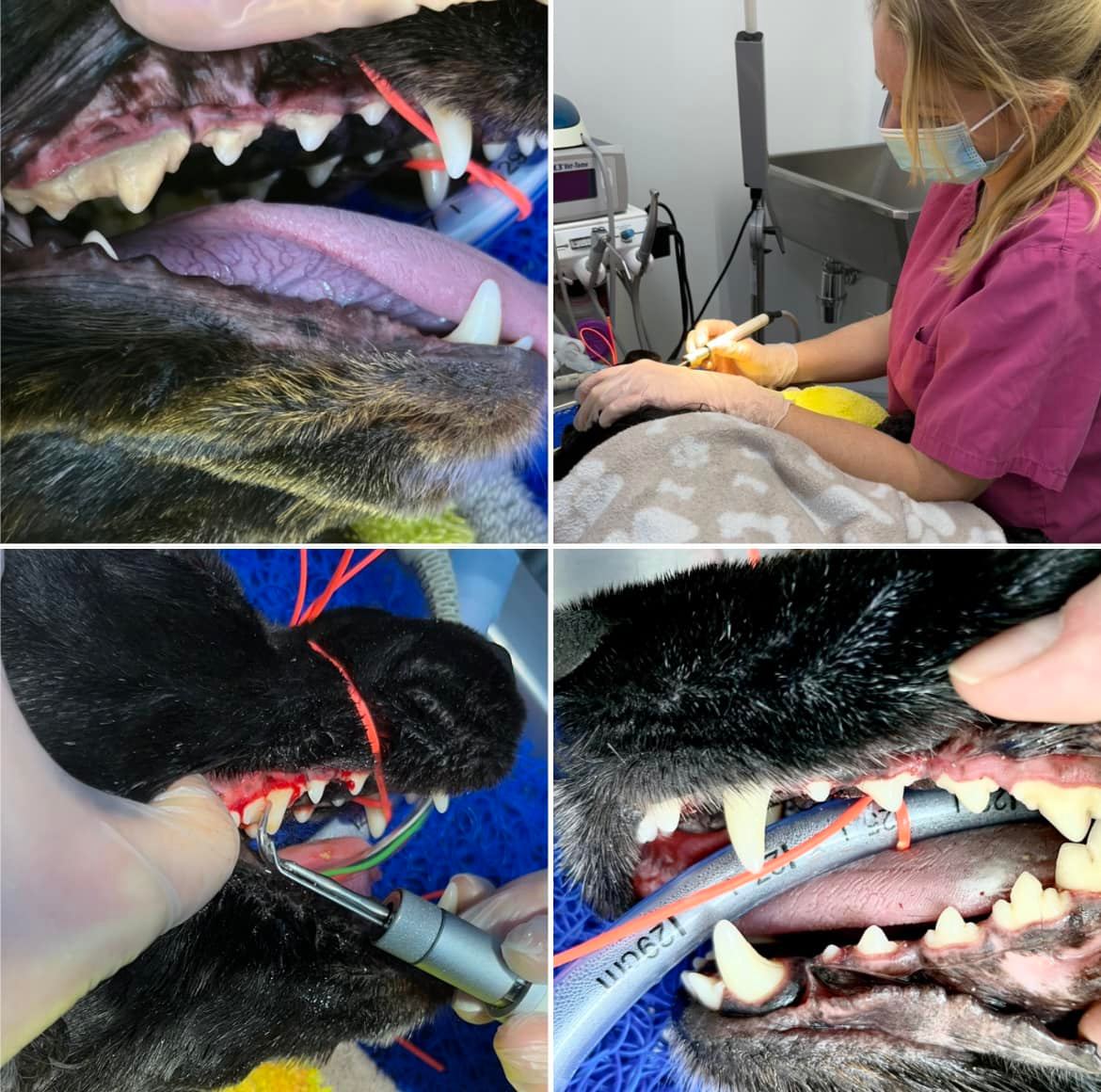
February is pet dental health month. You may have seen our educational posts on our Facebook page, but we have also collated some here for you.
Like humans, when dogs and cats eat, plaque builds up on their teeth. Without adequate oral hygiene bacteria feed on the plaque causing gingivitis (sore, red gums) and bad breath. Over time this can progress to tartar, loosening of the tooth and pain.
Treatment of tooth disease
Many dogs and cats will continue to eat despite severe tooth ache. It is important that dogs and cats have their teeth checked regularly, as it is better to treat early than leave the animal in discomfort. Severe gum disease is even a risk to other organs, such as the heart, as bacteria enter the bloodstream. The vet will check your pet’s teeth at their annual health check. Our nurses also offer free dental checks – which you can book online.
Plaque and tartar can be removed by doing a professional scale and polish, like we have at the dentists. For animals, this must be done under a general anaesthetic. Teeth that are loose or have severe gingivitis affecting them will be removed. Dogs and cats cope very well with removal of diseased teeth and are often noticeably happier once the source of pain has been removed.
Prevention of tooth disease
By instigating good oral hygiene in your pet from a young age you may be able to prevent the cost of dental treatment later in their life. It can also be started following a dental procedure, once the gums have healed from any extractions.
Just like humans, the gold standard is to brush your dog or cat’s teeth daily with a special pet toothpaste e.g., Logic Oral Hygiene Gel or Virbac Enzymatic Toothpaste to remove plaque. We can show you how to do this in a free nurse consultation, and you can check out a video to learn more here.
What can I do if I can’t brush my pet’s teeth?
- Use an oral rinse, designed to fight plaque with or without brushing.
- Use a drinking water additive, designed to inhibit plaque build-up.
- Use a special diet, designed specifically to prevent plaque build-up e.g., Hills t/d. Some chews have also been shown to be effective e.g., Virbac Veggiedent.
Our nursing team can advise and demonstrate how to use these products.
